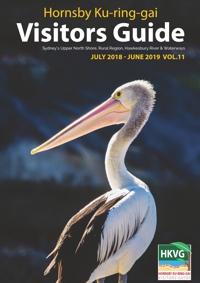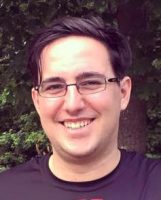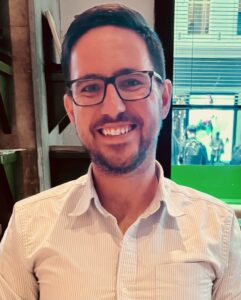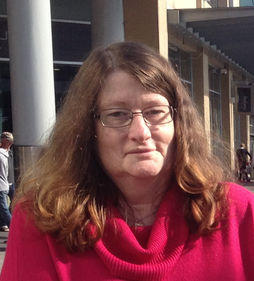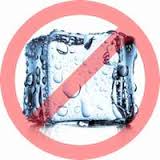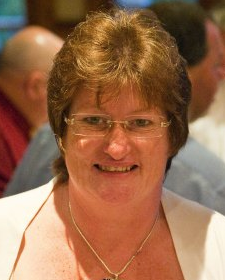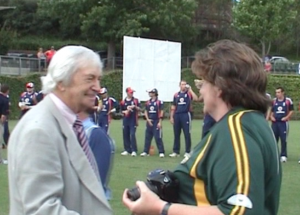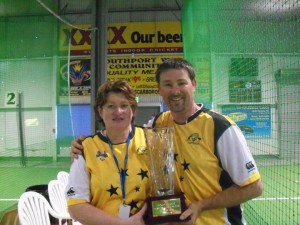 Our Principal Therapist,
Our Principal Therapist,
Nicki Cooke

Qualifications
- In continuous practice since 1995
- Diploma of Remedial Massage
- Diploma of Sports Injury Therapies
- Certificates in Functional Assessment
- Level II Sports Trainer
- Lower Limb Mechanics Level One
- Onsen Therapy Volume One
- Cancer Massage and More
- Natural Fertility Management
- Level One Lymphatic Drainage
- Hot Stone Massage
- Advanced First Aid
- Sports First Aid
- Remote Area First Aid
- Accredited Cricket Australia Coach
- Member, Australian Traditional Medicine Society
Book Nicki Now
Nicki’s interests
Blowfly Cricket
As Inaugural President of a new brand of cricket for kids with disability, Nicki developed health and first aid policy, and liaised with Cricket NSW.
Blind Cricket
As an accredited Cricket Australia Coach, Nicki has worked with the Aussie Blind Cricket Team and both the NSW and ACT Blind Cricket Teams. She has also worked as Team Therapist and Trainer.
In 2008 she was on the organising committee which hosted the Inaugural Australian Blind Cricket Ashes, and acted as Team Therapist for Australia. She also acted as Tournament Therapist for the 2010 Nationals in Sydney.
 Patron of the Inaugural Australian Blind Cricket Ashes 2008 Tour, Richie Benaud, meets Nicki Cooke
Patron of the Inaugural Australian Blind Cricket Ashes 2008 Tour, Richie Benaud, meets Nicki Cooke
Wheelchair Sport
Since 1998 Nicki has provided remedial massage, sports injury therapy and first response to athletes with disability. With experience at Olympic, Paralympic and World Cup level, Nicki has also travelled to Paris for the French Open (Wheelchair) Tennis, and worked with the WheelBlacks and Australian Steelers at International level.
Rehabilitation
The last 20% of recovery from injury, accident or illness takes 80% of the time and effort. It is challenging for therapists and frustrating for clients. Often a cheerful word and a fun approach to rehab helps to change mindsets and break down psychological barriers to progress. Research in neuroplasticity cause and effect has resulted in significant improvements for clients.
Masters Sport
Working with Masters Athletes requires a lateral approach, and Nicki feels that athletes at elite level in Masters sport have the most to gain from her experience. Usually therapists aspire to work with young elite athletes so Masters is an area with a paucity of therapy options. Thus she has found a willing and motivated group.
 Nicki at the Indoor Cricket Masters World Series, 2010
Nicki at the Indoor Cricket Masters World Series, 2010
Indoor Cricket
Both N.Z. and Australia have benefited from Nicki’s care. In South Africa in 2011, for Opens, and Masters Gold Coast for Australia, the teams under her watchful eye made a clean sweep of all 5 grades.
The N.Z. teams at Masters level took bronze, silver and gold in South Africa in 2013, and their Over 40 Men’s Team took Silver in the 2015 Australian Masters Championships.
Nicki Cooke went to Adelaide for the 2019 Australian Indoor Cricket Masters Championships, as Team Therapist for the New Zealand Central and Northern masters sides.
Outdoor Cricket
Nicki was Therapist for the New Zealand Over 50s Cricket team at the inaugural Over 50s Cricket World Cup in Sydney in 2018. She fulfilled the same role at the Over 50s Cricket World Cup in Cape Town, South Africa, in March 2020.
Testimonials
Never felt so comfortable before.
I have been seeing Nicki for the last few weeks for back and leg pain. Never in my life have I ever felt so comfortable with a therapist before. I enjoy coming back every week and can not recommend her enough! See a video testimonial by Courtney.
Courtney T.
Berowra
IC Sports Therapies
19/02/2015
Read More...
The most qualified experienced and devoted therapist
As one of the top wheelchair athletes in tennis I have worked with Nicki on a weekly basis. She is the most qualified experienced and devoted therapist I have worked with. She shares an amazing passion and enthusiasm for her work and gets astonishing results.
Ben W.
Strathfield
IC Sports Therapies
29/03/2006
Read More...
Working magic on my painful knees
A huge thank you Nicki for working your magic on my painful knees so that I was able to enjoy my holiday in Tasmania. I was dreading the thought that I would be missing a number of tours due to the pain in my legs which was preventing me from Continue Reading
Margaret McM
Berowra
IC Sports Therapies
08/12/2015
Read More...
Nigel Fletcher, NZ Over 50s World Cup Cricket Team 2018
Nigel Fletcher
Captain, NZ Over 50s World Cup Cricket Team 2018
IC Sports Therapies
05/02/2019
Read More...
Check out Nicki and her team for amazing results
Been to at least a handle full of physio’s Chiropractors and other specialists in my 6 years of training Brazilian Jiu-jitsu. I have found that for my long term recovery as well as prevention and understanding of what is actually nessasry for a healthy athlete to Excel in his or Continue Reading
Tom C
Mt Colah
IC Sports Therapies
04/11/2017
Read More...
Mason Robinson, NZ Over 50s World Cup Cricket Team 2018
Mason Robinson
Keeper, NZ Over 50s World Cup Cricket Team 2018
IC Sports Therapies
15/02/2019
Read More...
Read more of Nicki’s testimonials…
Book Nicki Now
SaveSave
